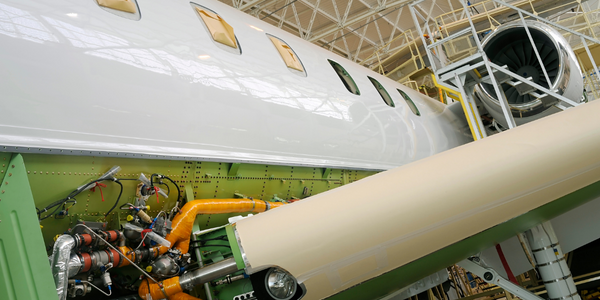Customer Company Size
Mid-size Company
Region
- America
Country
- United States
Product
- E2 MFG
Tech Stack
- AS400 system
- Excel
- QuickBooks
Implementation Scale
- Enterprise-wide Deployment
Impact Metrics
- Productivity Improvements
- Cost Savings
Technology Category
- Functional Applications - Enterprise Resource Planning Systems (ERP)
Applicable Industries
- Aerospace
Applicable Functions
- Discrete Manufacturing
Use Cases
- Manufacturing System Automation
- Inventory Management
Services
- System Integration
About The Customer
Jonal Laboratories is a company that was started in 1965 by Jon Nemeth, a chemist. The company creates compounds and turns those into seals for the aerospace industry. They make their own rubber for seals that are sometimes fabric-reinforced, so they can make them whatever shape or size is needed. They can create seals up to 13 feet by 2 feet or O rings up to 6 feet in diameter. One of their parts is even used in spacesuits. To make parts for these industries, Jonal Laboratories needs to produce exactly the right part on time and with high-level quality. Over the years, they’ve used a few different systems to make that happen.
The Challenge
Jonal Laboratories, a company that creates compounds and turns those into seals for the aerospace industry, was facing challenges with their old systems. They were using an AS400 system from the late ‘80s for most of the manufacturing side, Excel for quality, and QuickBooks and Excel for their accounting system. It was difficult to find information, and even when you did, you couldn’t be sure it was accurate and up to date. The old systems were making it much harder to train new people and keep jobs moving in the shop. As they hired a lot of new employees, they realized that their systems didn’t make sense to outsiders. They needed a system that could make their specialized knowledge easy to find and ensure that they’re looking at current information.
The Solution
Jonal Laboratories implemented E2 MFG to help organize, automate, and grow their operations. E2 MFG tied everything together, ensuring that they were looking at current information and that they could input data once and it immediately updates throughout the system. This made it easier for them to find information and ensured its accuracy. E2 MFG also helped Jonal Laboratories automate parts of their processes. The operators could just walk up, scan their job, scan the materials for the batch number and the material name, go to the job, and scan a barcode next to the quantity. This eliminated the need to look on the shop floor to get answers and have frequent meetings, saving them a lot of time.
Operational Impact

Case Study missing?
Start adding your own!
Register with your work email and create a new case study profile for your business.
Related Case Studies.

Case Study
Airbus Soars with Wearable Technology
Building an Airbus aircraft involves complex manufacturing processes consisting of thousands of moving parts. Speed and accuracy are critical to business and competitive advantage. Improvements in both would have high impact on Airbus’ bottom line. Airbus wanted to help operators reduce the complexity of assembling cabin seats and decrease the time required to complete this task.

Case Study
Aircraft Predictive Maintenance and Workflow Optimization
First, aircraft manufacturer have trouble monitoring the health of aircraft systems with health prognostics and deliver predictive maintenance insights. Second, aircraft manufacturer wants a solution that can provide an in-context advisory and align job assignments to match technician experience and expertise.

Case Study
Aerospace & Defense Case Study Airbus
For the development of its new wide-body aircraft, Airbus needed to ensure quality and consistency across all internal and external stakeholders. Airbus had many challenges including a very aggressive development schedule and the need to ramp up production quickly to satisfy their delivery commitments. The lack of communication extended design time and introduced errors that drove up costs.

Case Study
Accelerate Production for Spirit AeroSystems
The manufacture and assembly of massive fuselage assemblies and other large structures generates a river of data. In fact, the bill of materials for a single fuselage alone can be millions of rows of data. In-house production processes and testing, as well as other manufacturers and customers created data flows that overwhelmed previous processes and information systems. Spirit’s customer base had grown substantially since their 2005 divestiture from Boeing, resulting in a $41 billion backlog of orders to fill. To address this backlog, meet increased customer demands and minimize additional capital investment, the company needed a way to improve throughput in the existing operational footprint. Spirit had a requirement from customers to increase fuselage production by 30%. To accomplish this goal, Spirit needed real-time information on its value chain and workflow. However, the two terabytes of data being pulled from their SAP ECC was unmanageable and overloaded their business warehouse. It had become time-consuming and difficult to pull aggregate data, disaggregate it for the needed information and then reassemble to create a report. During the 6-8 hours it took to build a report, another work shift (they run three per day) would have already taken place, thus the report content was out-of-date before it was ever delivered. As a result, supervisors often had to rely on manual efforts to provide charts, reports and analysis.

Case Study
Developing Smart Tools for the Airbus Factory
Manufacturing and assembly of aircraft, which involves tens of thousands of steps that must be followed by the operators, and a single mistake in the process could cost hundreds of thousands of dollars to fix, makes the room for error very small.








